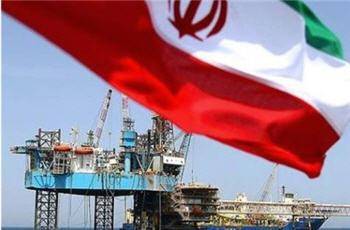EU to start already deadlocked ban on IRI
FarsNews: The European Union which buys 18% of the Iranian crude oil is scheduled to implement an oil embargo against Iran on July 1 but the move is more likely to be symbolic rather than a serious measure since major Iranian oil customers have been exempted from Iranian oil ban. As the deadline for the implementation of the oil ban nears, the westerners have waged a wave of media campaign, trying to show the impacts of oil embargo on Iran's national economy. The western affiliated media have waged much hues and cries in this regards and they are describing the July 1 as a tuning point for the impacts of sanctions on Iran's economy. But, is it the reality? Are sanctions going to be implemented from July 1? The answer is negative. In fact, the deadline is a symbolic move to maximize the psychological impacts of the anti-Iran sanctions because these sanctions have started since long time ago and are at their maximum level given the current conditions of the global economy.
"FarsNews: The European Union which buys 18% of the Iranian crude oil is scheduled to implement an oil embargo against Iran on July 1 but the move is more likely to be symbolic rather than a serious measure since major Iranian oil customers have been exempted from Iranian oil ban"The reality is that the EU which is importing 18% of Iran's exported crude oil has decreased its imports from Iran since the announcement of the sanctions (in January) and three major Iranian oil importers, including Greece, Italy and Spain, have not signed new long-term contracts to purchase Iranian oil in 2012. In the meantime, companies which had contracts with Iran to develop Iranian oil fields instead of buying Iranian crude oil have received waivers from sanctions. On the other hand, the EU refinery companies hope to buy Iranian crude from a third party given the decline in global oil price and given the high cost of any change in refinery structures to modify them to non-Iranian crude. In this regards, Chinese officials in their bilateral meetings with Iranian sides have voiced their willingness to increase Iranian oil purchases. That is while Greece's refineries as the greatest customer of Iran's oil in the EU have no option but to supply their needs from Iran since the country is clashing with dire economic problems.
In case they fail to access Iranian crude at all, they will come on the verge of bankruptcy. This is also true in the case of the chain of bankruptcy of the refineries of another European company, specially its refineries in France. So this is one of the cases proving that Europeans have practically halted official buying of Iranian oil since long time ago and the July 1 announcement for Iran's oil embargo is nothing but an effort to launch a psychological and propaganda ballyhoo against Iran without taking any step in practice. Meanwhile, the US has given waivers to 19 countries with regard to the purchase of Iranian oil. The move came after what Washington calls as these countries' cooperation to lower the level of oil imports from Iran.
"As the deadline for the implementation of the oil ban nears, the westerners have waged a wave of media campaign, trying to show the impacts of oil embargo on Iran's national economy"That means, these countries have embarked on lowering their oil imports from Iran in the past few months in a bid to be exempted from the US list and to continue supplying their oil needs from Iran. Hence, July 1 as the date announced for the start of the punitive measures against Iran is actually a date when the oil embargos that have already been imposed on Iran will end and not start, because those who wanted to cease or lower buying Iranian oil have done so already. On the other hand, traditional methods of selling crude oil have proved to be inefficient and Iran's move to rely on new methods has brought the country on the verge of a new phase of oil interactions on the international scene in which sanctions will have no meaning. These new methods to sell Iran's crude oil include participation of the private sector in oil marketing, establishment of oil bourse and establishment of shipping insurance organizations which breaks the US and Britain's monopoly in this profitable industry, as well as swap of national currencies to solve the country's problems in financial exchanges. In the meantime, Tehran, as the second largest owner of the world's oil reserves, will be able to enlist countries which have imposed sanctions on its oil in a blacklist and refrain from selling crude to these countries when global demands for oil grow higher than supplies in future.
In that case Iran will have much higher impacts on future oil markets and no one will criticize Iran for adopting such a decision (to avoid oil supply to blacklisted countries). In this case, the future relations between oil producers and customers will be more balanced
Related news
Other news on this day
Copyright © 2001-2024 - Sarkhat.com - About Sarkhat - News Archive - جدول لیگ برتر ایران






